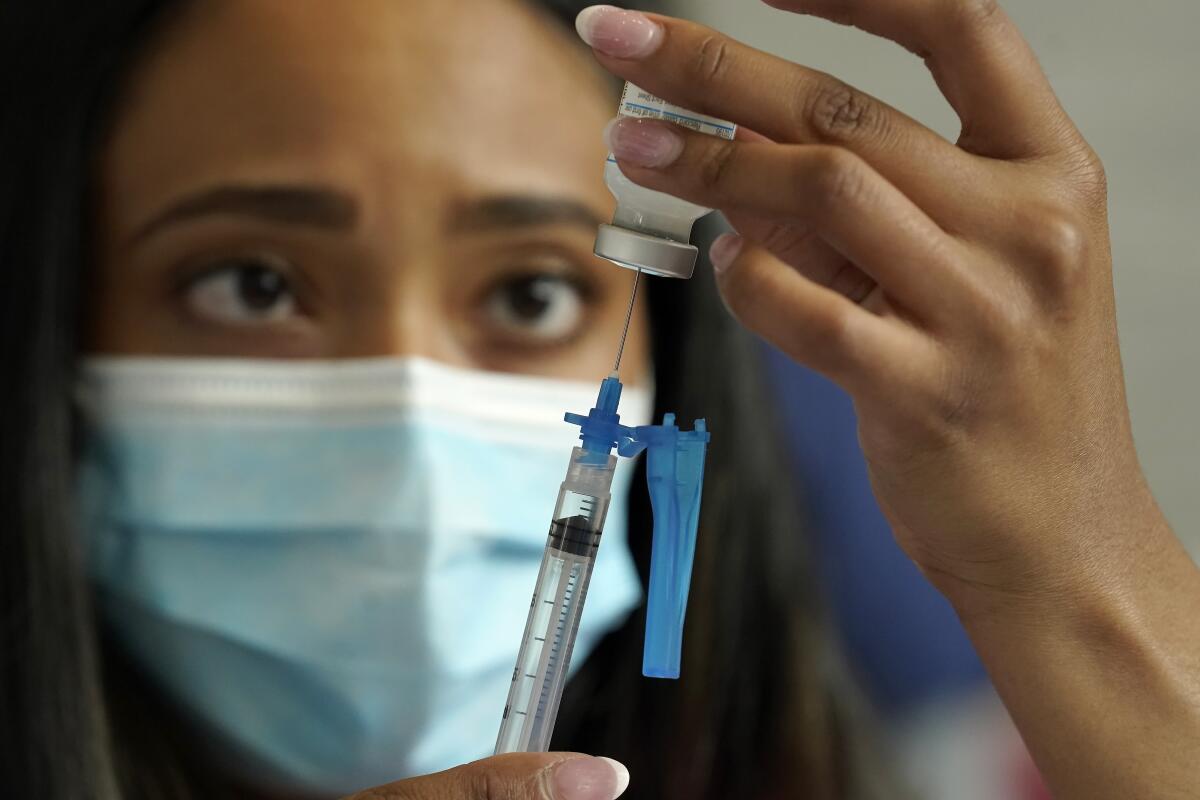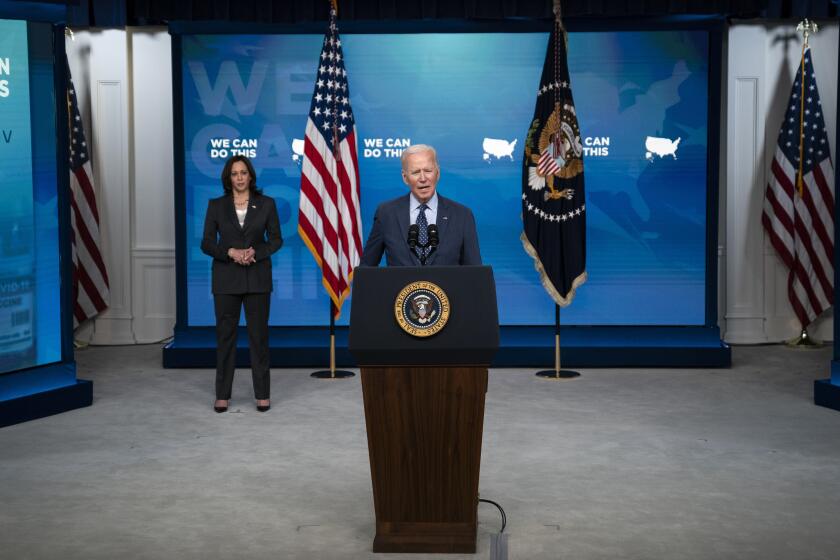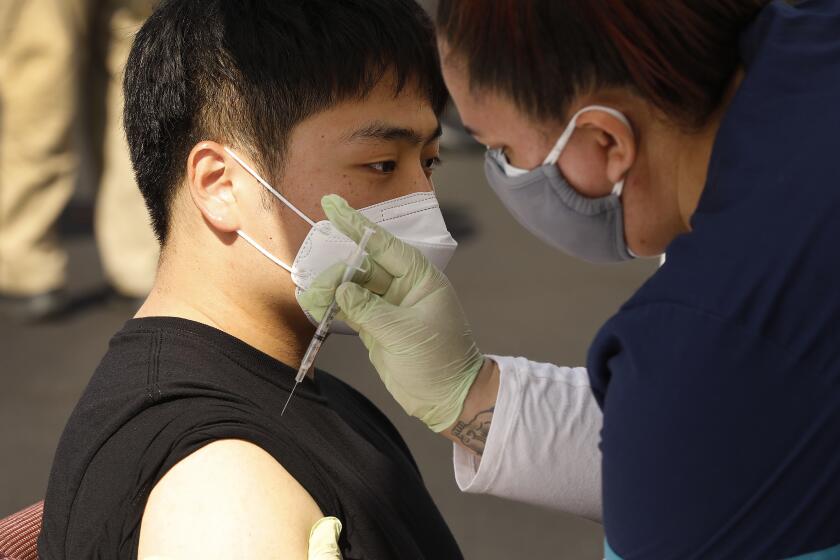Why and when do COVID-19 vaccines expire?

- Share via
How long do vaccines last?
That’s now a critical question as the Biden administration prepares to send tens of millions of unused COVID-19 doses abroad to help curb the pandemic.
Some state officials have said in recent days that they have unused doses that may expire by the end of the month, and White House Press Secretary Jen Psaki said Thursday that looming expiration dates were a factor as the administration works to get the doses sent out as quickly as possible.
The White House will send 75% of excess U.S. COVID-19 vaccine doses to the U.N.-backed COVAX global sharing program.
Many drugs and vaccines can last for years if stored properly, but all can eventually start losing effectiveness, much like how food can degrade in a pantry.
Vaccine providers keep an eye on the expiration dates that come with each batch to ensure they’re using up their supplies in time.
Expiration dates for vaccines are determined based on data the manufacturer submits to regulators showing how long the shots stay at sufficient strength, said former Food and Drug Administration vaccine chief Norman Baylor.
It’s called a “potency assay,” and it can vary by vaccine. Some vaccines, such as tetanus shots, typically last two years if properly stored.
With so many Americans becoming immunized, it’s natural to look ahead and wonder how long this protection will last. The answer: No one knows.
Like many perishable items, COVID-19 vaccines remain stable longer at lower temperatures.
The vaccines authorized in the U.S. — made by Pfizer and BioNTech, Moderna and Johnson & Johnson — can last for up to about six months from the time of manufacture, depending on how they’re stored.
But the COVID-19 vaccines are new, and vaccine manufacturers have continued to test samples of batches in the months since the shots first rolled out, Baylor said. Depending on the results of those tests, the expiration dates could be extended.








